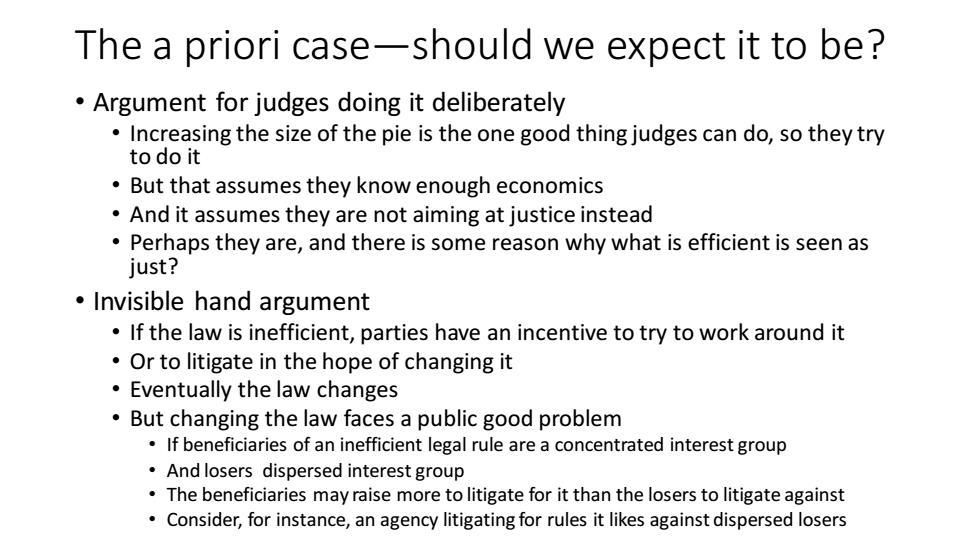正在加载图片...

The a priori case-should we expect it to be? Argument for judges doing it deliberately Increasing the size of the pie is the one good thing judges can do,so they try to do it But that assumes they know enough economics And it assumes they are not aiming at justice instead Perhaps they are,and there is some reason why what is efficient is seen as just? Invisible hand argument If the law is inefficient,parties have an incentive to try to work around it Or to litigate in the hope of changing it Eventually the law changes But changing the law faces a public good problem If beneficiaries of an inefficient legal rule are a concentrated interest group And losers dispersed interest group The beneficiaries may raise more to litigate for it than the losers to litigate against Consider,for instance,an agency litigating for rules it likes against dispersed losers The a priori case—should we expect it to be? • Argument for judges doing it deliberately • Increasing the size of the pie is the one good thing judges can do, so they try to do it • But that assumes they know enough economics • And it assumes they are not aiming at justice instead • Perhaps they are, and there is some reason why what is efficient is seen as just? • Invisible hand argument • If the law is inefficient, parties have an incentive to try to work around it • Or to litigate in the hope of changing it • Eventually the law changes • But changing the law faces a public good problem • If beneficiaries of an inefficient legal rule are a concentrated interest group • And losers dispersed interest group • The beneficiaries may raise more to litigate for it than the losers to litigate against • Consider, for instance, an agency litigating for rules it likes against dispersed losers